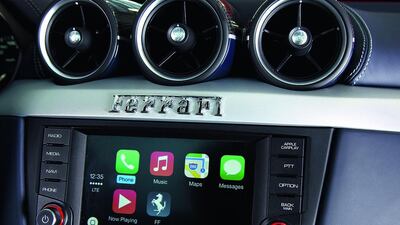Just a few nights ago, I spent an enjoyable 90 minutes watching Planes, Trains and Automobiles – a film that I hadn't seen for probably 15 years. The tale of a grumpy marketing man unwittingly ending up sharing a journey from New York to Chicago in time for Thanksgiving with an annoying (yet harmless) shower-curtain-ring salesman, it's eminently quotable, funny and poignant. And, by the end of it, it struck me how almost all of the woes of Neal Page (Steve Martin) could have immediately been solved if he'd just had the use of a mobile telephone – something that was still years away from being in general use when the film was made in 1987.
What was supposed to be a short domestic flight ended up being an epic journey across a snowbound North America, with detours, cancelled flights, a stolen rental car, a broken-down train, a coach of morons who'd rather sing The Flintstones theme tune than Frank Sinatra and possibly the worst hotel experience ever captured on celluloid. If he'd had a smartphone in his pocket, he could probably have avoided all of it, with the exception of that closed airport. Nobody in this day and age would think about embarking on any journey without their phone. You never know when you might need to contact someone important or post a picture of your dinner on Instagram.
So we’ve established that being able to communicate while on the move is mostly a positive thing. But, as usual, the human race just doesn’t know when (or even how) to unplug. Our lives revolve around digital information and communication. I used to be able to ignore work while on long-haul flights – but with the advent of on-board internet, I’m never not contactable via email or WhatsApp, unless the plane happens to be flying over the North Pole. For the business traveller, this connectivity is a bonus, but what about our cars? Do any of us actually need – or want – to be able to change our Facebook status while on the road?
Car manufacturers and technology companies obviously think that we do. Currently, there’s a storm brewing between them and the world’s safety campaigners, who believe (rightly in my opinion) that in-car internet connectivity is a step too far. Driving can be a dangerous activity at the best of times and we should be concentrating on the road ahead and our surroundings, rather than being alerted whenever somebody has hit the “like” button on that photo of the new shoes you bought over the weekend.
Think about the various distractions that drivers are faced with in modern cars. Satnav, iPods, DVD players – all fine in their own right but they can, and do, distract drivers from doing what they should be doing. And mobile phones? Every day I see drivers with phones pressed against their ears, despite the fact that their cars are equipped with Bluetooth connectivity. Cars might be better built these days, but these other marvels of technology are responsible for untold numbers of injuries and fatalities. Something has to change.
Even Volvo, long known for its stringent safety standards, has recently come under fire for its next generation of infotainment systems, designed in conjunction with Apple.
"The idea that people want to be on their phones, and therefore let's give them a way to do that – that's not putting safety first, that's putting convenience and the desire to be in touch first," said Bruce Hamilton, the manager of research and communications at the AAA Foundation for Traffic Safety, to CNN Money.
He’s right. But the insatiable desire for people to turn their cars into automotive smartphones and tablets will cause carmakers to fall over themselves in the race to attract younger buyers. Where will this all end? For far too many people, it could end with a premature visit to the morgue.
khackett@thenational.ae

